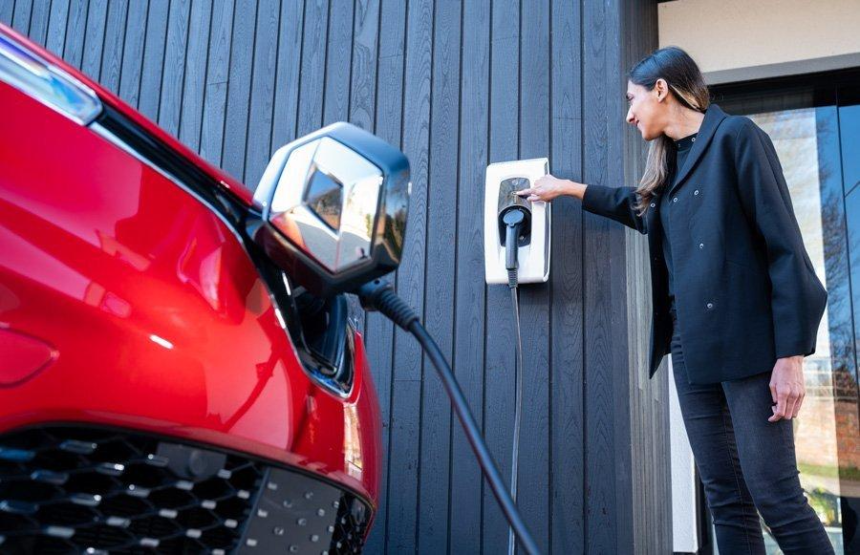Introduction
As the world transitions towards sustainable living, electric vehicles (EVs) have become a pivotal element in the pursuit of eco-friendly transportation. With the increasing adoption of EVs, the demand for efficient and intelligent home charging solutions has grown exponentially. Smart home EV chargers have emerged as a crucial component in supporting this shift, allowing users to conveniently charge their vehicles while optimizing energy consumption. In this article, we will explore the key players in the market, their innovations, and the transformative impact they are having on the landscape of home EV charging.
Leading Smart Home EV Charger Suppliers
Tesla: A Pioneer in Electric Mobility
Tesla, the trailblazer in the electric vehicle industry, extends its innovation to home charging solutions. The Tesla Wall Connector is a prime example of their commitment to simplicity and efficiency. With features like Wi-Fi connectivity and over-the-air updates, Tesla’s chargers are not only user-friendly but also capable of adapting to evolving technologies. Tesla’s proprietary Supercharger network adds another layer of convenience, offering high-speed charging for Tesla owners on the go.
ChargePoint: Unleashing the Power of Networks
ChargePoint has positioned itself as a leading player in the smart EV charging infrastructure. The company provides a comprehensive network of charging stations, including home solutions. Their residential chargers boast Wi-Fi connectivity, mobile app integration, and energy management features. ChargePoint’s focus on creating an interconnected charging ecosystem aims to make EV ownership seamless and accessible to all.
Siemens: Integrating Intelligence with Tradition
Siemens, a renowned name in industrial automation and energy management, brings its expertise to the home EV charging arena. Siemens VersiCharge offers users a robust and reliable charging solution with adjustable power settings and compatibility with various EV models. Siemens emphasizes safety and durability, ensuring a long-lasting and secure charging experience for homeowners.
JuiceBox: Empowering Users with Versatility
JuiceBox stands out for its emphasis on user control and flexibility. Their smart home EV chargers, like the JuiceBox 40, allow users to customize charging schedules, monitor energy usage, and even integrate with smart home platforms like Amazon Alexa. JuiceBox’s commitment to interoperability ensures compatibility with a wide range of EVs, making it an attractive choice for diverse consumers.
Schneider Electric: Embracing Sustainable Energy
Schneider Electric, a global specialist in energy management, has entered the smart home EV charging market with innovative solutions. Their EVlink Smart Wallbox combines efficient charging with an emphasis on sustainability. With features like load management, remote monitoring, and renewable energy integration, Schneider Electric’s offering reflects a commitment to making home EV charging as eco-friendly as possible.
Innovations Shaping the Future
Bidirectional Charging: Redefining Energy Flow
Bidirectional charging is a game-changer in the world of EVs and home charging. Some smart home EV chargers, like those from Nissan and Honda, support bidirectional charging, allowing EVs to not only draw power but also send excess energy back to the grid or power the home during peak demand. This bidirectional capability enhances the overall efficiency and resilience of the energy ecosystem.
Artificial Intelligence Integration: Predictive and Adaptive Charging
The integration of artificial intelligence (AI) in smart home EV chargers is enabling predictive and adaptive charging strategies. AI algorithms analyze user behavior, energy prices, and grid demand to optimize charging schedules automatically. This ensures that EV owners can take advantage of lower electricity rates, minimize grid impact, and achieve cost-effective and eco-friendly charging.
Solar Integration: Harnessing the Power of the Sun
Several smart home EV charger suppliers are integrating solar power capabilities into their products. This allows users to harness clean energy from the sun to charge their EVs, reducing reliance on the grid and further contributing to environmental sustainability. Brands like Tesla and Schneider Electric are leading the way in providing seamless integration with solar panels for an eco-conscious charging experience.
Enhanced Connectivity: Building an Ecosystem
The future of smart home EV chargers lies in seamless connectivity. Manufacturers are investing in building ecosystems where EV chargers can communicate with other smart home devices, electric grids, and even vehicles. This interconnectedness ensures a holistic approach to energy management, providing users with a comprehensive and integrated smart home experience.
Impact on Sustainable Mobility
The emergence of smart home EV charger suppliers and their innovations is significantly impacting the landscape of sustainable mobility. Here are some key contributions:
Accessibility:
Smart home EV chargers make electric vehicle ownership more accessible to a broader audience by providing convenient and efficient charging solutions at home.
Energy Optimization:
The integration of intelligent features enables users to optimize their energy consumption, making EV charging more cost-effective and environmentally friendly.
Grid Management:
Bidirectional charging and advanced energy management features contribute to a more resilient and efficient electric grid by allowing EVs to act as distributed energy resources.
Eco-Friendly Practices:
Solar integration, AI-driven optimization, and sustainability-focused designs contribute to reducing the overall environmental impact of EV charging.
Conclusion
The world of smart home EV chargers is rapidly evolving, with innovative technologies and forward-thinking companies paving the way for a sustainable future. As the demand for electric vehicles continues to rise, the role of smart home charging solutions becomes increasingly crucial. From Tesla’s cutting-edge simplicity to ChargePoint’s expansive network, these suppliers are shaping the way we charge our EVs at home, making sustainable mobility more accessible and efficient than ever before. The integration of bidirectional charging, artificial intelligence, and solar capabilities signals a promising future where smart home EV chargers play a central role in the transition to a cleaner and greener transportation ecosystem.







